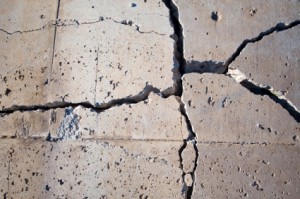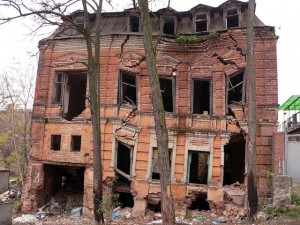FORENSIC ENGINEERING - AUSTIN, TEXAS-AND-NEW-MEXICO |
|||
|---|---|---|---|
ORDER NOW: | TOLL FREE | DIRECT | CENTRAL TEXAS |
866.440.0003 | 210.601.1379 | 512.522.9197 |
|
Forensic Engineering

ABANDONED RESIDENCE – CENTRAL, TEXAS
Geared for both consumers and commercial business entities, Lineberger consults with law firms, insurance providers, construction professionals and facility owners to address a myriad of technical issues relevant to specific projects. Typical consulting engagements address construction defects, code compliance, value engineering, and cause and origin of construction failures.
On the forensic side, Lineberger provides forensic analysis and consulting expert services to address and determine the cause and origin of civil & structural design failures and construction defects. When called upon to do so, Mr. Jeff Lineberger, P. E., provides expert witness testimony in courts of law across the state of Texas. Lineberger conducts Structural Forensic Investigations for residential, commercial, and industrial facilities. We investigate, report, and provide expert testimony when called to do so in district and federal courts.

CRACKED CONCRETE WALL
Example practice areas include:
-
Structural Damage Assessments
-
Slab Foundation Failure
-
Pier & Beam Foundation Failure
-
Structural Settlements
-
Plumbing Leak Failure and Damage Diagnostics
-
Drainage Failures
-
Design and Construction Errors & Omissions
-
Pier Underpinning Failure evaluations
-
Structural Repair
-
Foundation Stabilization Design

ABANDONED RESIDENCE – CENTRAL, TEXAS
Lineberger determines the cause and origin of failures, recommends remedial designs where appropriate, evaluates geotechnical and structural properties & criteria using a range of testing methods such as:
-
Standard Penetration Test (SPT) Borings. The SPT method of soils exploration is a technique used to obtain information on the type and approximate thickness of each layer of soil (typically referred to as the soil profile), the relative density of in-situ soils, and the approximate depth to the water table. This method is also used to obtain soil samples for laboratory analysis.
-
Floor Surface Relative Elevation Survey. This type of survey is done by using a Technidea Pro 2000 Zip level elevation measurement system. The floor survey is limited to reasonably accessible areas within the living area of the structure. It measures the variations in height along a structure’s floor surface with an accuracy of an 1/8” over a ten foot span.
-
Hand Augers. Hand auger borings are performed to obtain information on near surface soil conditions and the approximate depth to the water table. This method is also used to obtain soil samples for laboratory analysis.
-
Cone Penetrometer Test (CPT) Soundings. The CPT method of soils exploration is a minimally intrusive technique used to obtain information about the soil profile by measuring the resistance to penetration of the probe.
-
Dynamic Cone Penetrometer (DCP) Testing. The DCP is a portable, hand-held device that is used to indicate the relative density of in-situ soils in areas difficult to access with the standard penetration test (SPT) equipment.

FAILED MULTISTORY STRUCTURE